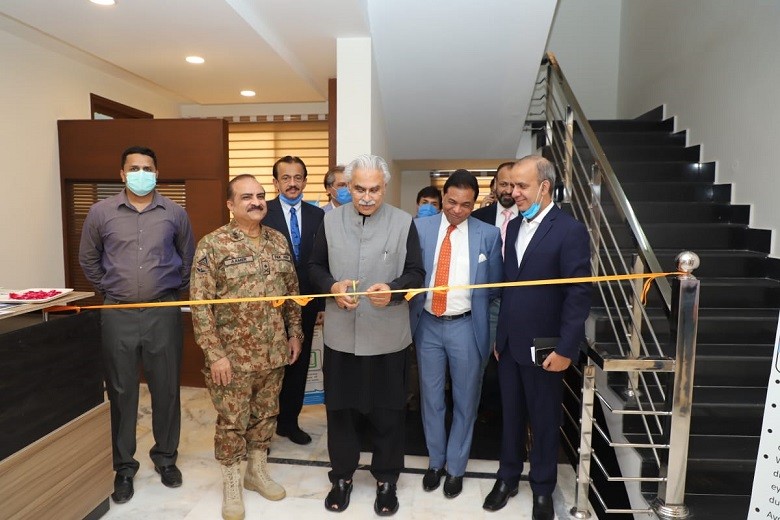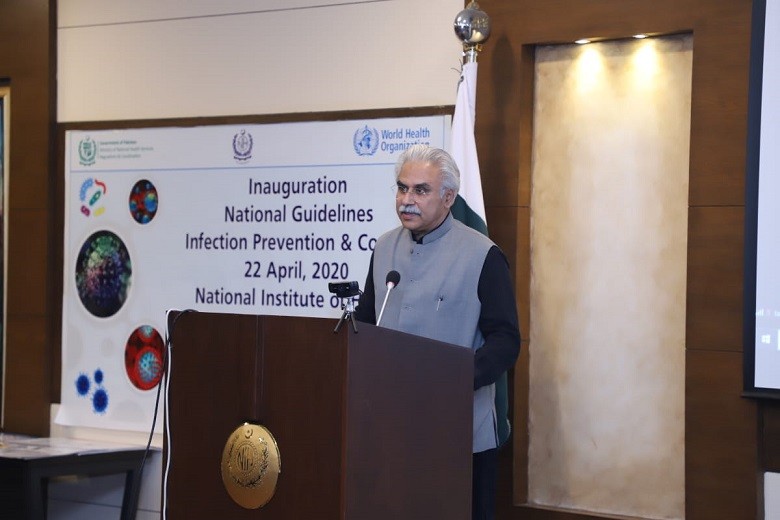By Hamid Khan Wazir
ISLAMABAD, Pakistan: The National Institute of Health (NIH) in collaboration with the World Health Organization (WHO) has established the Center for Occupational and Patient Safety (COPS) and also developed Infection Prevention Control (IPC) Guidelines.
The prime goal of the COPS is to provide continuous strategic guidance, capacity building, research, and invalidation in the facilitation of the leaders at all levels to embrace, create, and implement tools of occupational safety.
In this regard, an inauguration ceremony was held here on Wednesday, which was attended by the Special Assistant to the Prime Minister on Health Dr. Zafar Mirza as the chief guest.
The COPS will offer a range of programs to raise awareness and expedite the implementation of ideas and best practices to achieve transformation in patient safety. The COPS will play an instrumental role to enhance the patient experience, reduce risks and harm, and achieve better health outcomes to improve healthcare quality in Pakistan.
Currently, there is no formal Infection Prevention & Control (IPC) program either at the national, provincial or the facility level. These National IPC Guidelines may apply and practice throughout the country for prevention from infection especially in the context of COVID-19
The main objective of these guidelines was to provide basic and simple IPC knowledge and practices to prevent healthcare workers and patients from different kinds of infections. These Infection Prevention and Control guidelines will be implemented at all times for extending safe care in all healthcare facilities (primary, secondary and tertiary healthcare facilities- in both private and public sectors) as a part of the routine (standard) practices in the healthcare environment especially in the context of COVID-19.
These National IPC Guidelines were prepared with the help of experts from the WHO and a National Technical Working (TWG) group comprising medical microbiologists, infectious disease physicians and consultants in public health from all over the country. The entire process was facilitated by the National Institute of Health (NIH) in Islamabad.
Dr. Zafar Mirza said on this occasion that It is expected that these guidelines will be valuable for improving the quality of services regarding IPC in healthcare facilities. he added these guidelines are developed after several meetings and consultations with experts of the assorted areas of IPC. The subject matter is realistic and applicable to the existing local setups in the country. The guidelines will be pertinent to all healthcare facilities in Pakistan.
On this occasion the Executive Director Maj. Gen. Aamer Ikram said we are optimistic that the effective implementation of these simple IPC practices and functions of COPS will have an enormous positive impact in reducing healthcare-associated infections (HAIs), and improving patient safety levels. In addition, these guidelines will influence antimicrobial consumption and strengthen the Antibiotic Stewardship program to reduce the burden of antimicrobial resistance (AMR) which is a global priority. He added, the guidelines and Center will help the healthcare workers in prevention and safety form the diseases like COVID-19.
WHO Representative to Pakistan, Dr. Palitha G Mahipala also talked about the event that it is a privilege to be present at the launch of the National IPC guidelines. We are here today to highlight the importance of clean care, including hand hygiene best practices and the central role health care workers play in this. Clean care has always been recognized as one of WHO’s urgent challenges to be tackled but in times of COVID-19, this has become even more important. WHO has three priorities for responding to the COVID-19 pandemic: protecting health workers, engaging communities to protect those at highest risk of severe disease, and supporting vulnerable countries for containment of infection.
